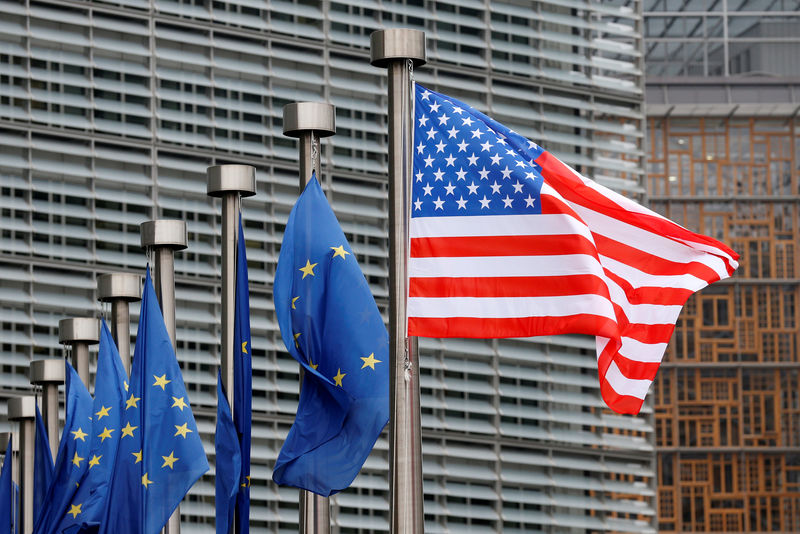S&P 500 slips, but losses kept in check as Nvidia climbs ahead of results
Investing.com -- The escalating trade conflict between the U.S. and Europe threatens a commercial relationship valued at $9.5 trillion in two-way trade and investment, according to U.S. businesses caught in the dispute.
The American Chamber of Commerce to the European Union (AmCham EU) warns that tariffs could impact not just goods directly taxed but also broader trans-Atlantic investments, which are significantly larger in value.
While trade in goods between the U.S. and Europe, including the U.K., reached $1.3 trillion last year and trade in services exceeded $750 billion, affiliate sales of European companies in the U.S. likely surpassed $3.5 trillion, with U.S. affiliate sales in Europe exceeding $4 trillion, the group said in a new report.
“The damage to the trade flows in goods is bad enough,” said AmCham EU Chief Executive Malte Lohan. “The real risk is that it starts contaminating some of the other links.”
President Trump has focused on the goods trade deficit with Europe, which stood at $235.6 billion last year, according to the Commerce Department.
He recently imposed 25% tariffs on global steel and aluminum imports and has threatened further levies on European cars, pharmaceuticals, and other goods. In response to the EU’s countermeasures—including tariffs of up to 50% on U.S. products such as whiskey—Trump threatened 200% tariffs on French Champagne and other European alcoholic beverages.
Industry leaders on both sides of the Atlantic warn that such tariffs could be highly damaging. European wine producers say a 200% tariff could effectively cut them off from the U.S. market.
Dan Hamilton, a fellow at Johns Hopkins University and a co-author of the AmCham EU report, cautioned that the EU could retaliate by targeting U.S. services, where the U.S. has a trade surplus.
Tariffs could also disrupt supply chains by making it harder for European firms to send parts to their U.S. affiliates or for American companies to export finished goods.
More U.S. foreign direct investment goes to Europe than to the rest of the world combined, while European firms make up nearly two-thirds of global foreign direct investment in the U.S.
Hamilton warned that policy uncertainty could force companies to reconsider their trans-Atlantic investments.
“The ripple effects of conflict in the trade space will not be confined to trade,” he said.
